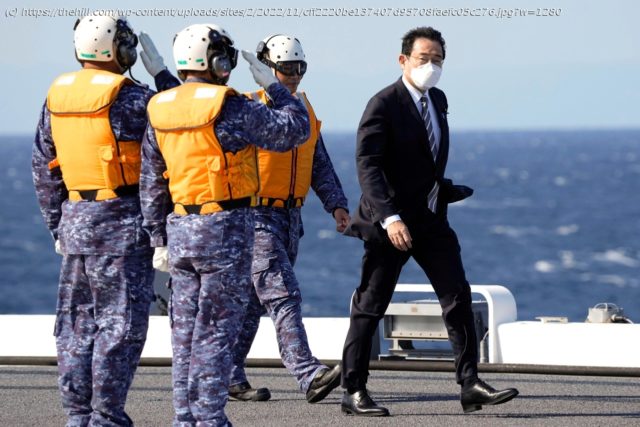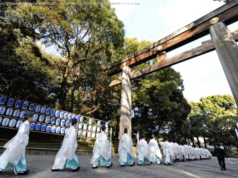Array
As Japan’s Prime Minister Fumio Kishida visits the White House this week, President Joe Biden will appropriately applaud Kishida’s championing the strengthening of Japan’s defense capabilities. Kishida leads an American ally made even more essential by its recent National Security Strategy (NSS) and National Defense Strategy (NDS) defining the path to doubling defense spending and adding counterstrike capabilities.
The two heads of state share the objective defined in Japan’s NDS to deter “unilateral changes to the status quo by force.” While one might first visualize how these actions will strengthen Japan’s visible hard power in terms of fighter jets, warships or missiles, what will be equally, if not more, essential to achieving the allies’ objective is Japan’s progress in bolstering dimensions of power not evident to the human eye.
In addition to the unseen strength of Japan’s economic and diplomatic efforts to maintain a free and open Indo-Pacific, let me highlight three areas of invisible power essential to deterring aggression.Space, cyber and electromagnetic
Japan’s NDS recognizes that in today’s digital world, “The domains of space, cyber, and the electromagnetic spectrum are basic infrastructure in people’s daily lives as well as being vitally important for carrying out cross-domain operations in defense of Japan.” Central to effectively deterring aggression is the perception and reality of being able to mobilize forces. That is why America’s recent National Defense Strategy commits to “improve its ability to operate in the face of multi-domain attacks on a growing surface of vital networks and critical infrastructure, both in the homeland and in collaboration with Allies and partners at risk.”
Two recent reports highlight the centrality of securing the ability to mobilize from Japan. The top three risks in the Council on Foreign Relations’ Preventive Priorities Survey 2023 are 1) An escalation of coercive pressure by China toward Taiwan, including heightened military activity, 2) Ukraine and 3) A highly disruptive cyberattack targeting U.S. critical infrastructure.
To deter aggression in Taiwan, Japan is “U.S. critical infrastructure,” as a recent war game of a potential attack on Taiwan by the Center for Strategic and International Studies affirms.






